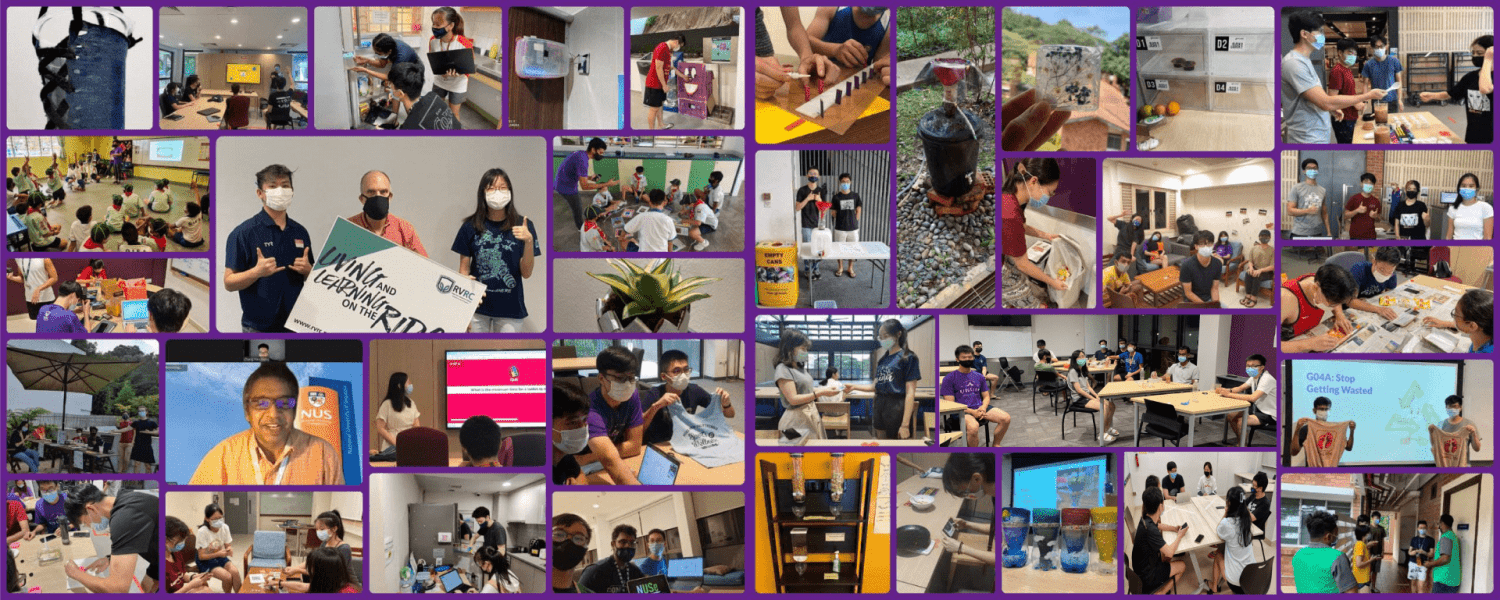Ang Kah Meng (FOE), Mio Jia Ying (SDE), Tew Fang Yie (FOE) & Victoria Lee Yu Qing (FOE)
Academic Advisor: Ms. Wong Kah Wei
Wastage of food in communal fridges has been a persistent issue in Ridge View Residential College (RVRC). With convenience for residents in mind, we implemented a multi-pronged approach of 1.) Food Sharing System (FSS), which comprised of labelling stickers to indicate food items that residents want to share and a telegram group chat to facilitate food sharing; 2.) Fridge-inventory mobile applications to remind residents of their food.
From our findings, the food waste mass in the treatment levels were on average consistently about 30% lower than that of the control levels. Around 60% of the residents from treatment levels made use of the FSS but were not as receptive to the fridge inventory application. Hence, we conclude that the FSS was an effective solution due to its convenience and practicality for reducing food waste from communal fridges, and has the potential to be sustainable with a few modifications.
